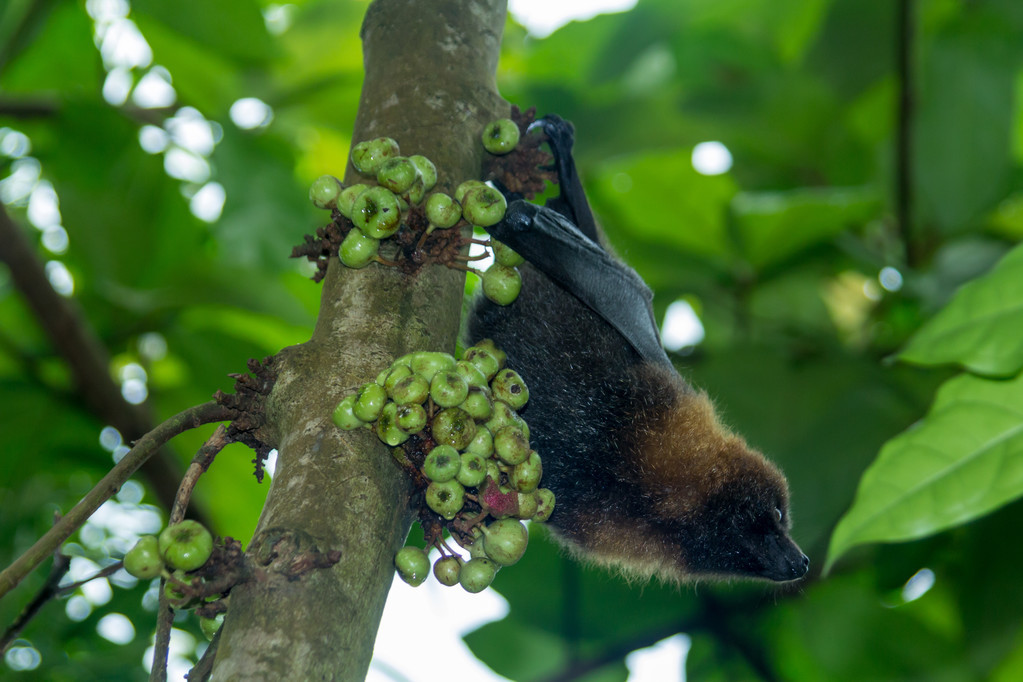Fruit bats, also known as "flying foxes", so some people call them fox bats.
In Mauritius, Africa, where only 5% of the primary forest remains due to continuous deforestation, fruit bats have to go to fruit orchards to find food in order to survive, but they did not expect to cause disaster to this population.
Since 2015, mauritian authorities have carried out three large-scale hunting operations against fruit bats to protect the fruits in the orchards, and more than 50,000 fruit bats have disappeared during the hunt.
The first killing took place in 2015 and killed 30,000 fruit bats. The second hunt was in the following year, when another 7380 fruit bats died. Inspired by this, the International Union for Conservation of Nature immediately upgraded the protection of fruit bats to endangered status, but the most recent time Mauritian authorities killed 13,000 fruit bats.
"Pushing endangered fruit bats into extinction," a group of scientists is preparing to sue the Mauritian government for their massive killings, which have killed at least half of the fruit bats, and now there are fewer than 30,000 fruit bats left in Mauritius.

Professor Vincent Florence, an ecologist at the University of Mauritius, believes that the number of fruit bats killed is actually much higher than the 50,300 published by the government.
In an interview with National Geographic, he explained: "At the time of hunting, many fruit bats are pregnant. Shooting one of the bats is almost equivalent to two lives. ”
According to animal conservationists, fruit bats are vital to biodiversity because they pollinate flowers and spread seeds, allowing trees and plants to continue to grow and spread.
Teag Kingston, a biologist and bat expert at the International Union for Conservation of Nature, says the fewer fruit bats remain, the more vulnerable they are to natural disasters, disease and habitat loss, leading to species extinction.
The Bat Conservation Trust in the UK has called for an end to the killing, citing the study finding that fruit bats cause only 10% of the damage done to fruit tree plants.
Scientists are filing a lawsuit against Mauritian authorities for harming animal welfare to prevent them from re-killing fruit bats. After the first two hunts, lychee production in orchards has dropped by 70 percent, they say, so it's likely due to weather, fruit flies, finches, macaques and rats, and fruit bats are not to blame for the fruit production.
"Scientific advocacy, communication between the International Union for Conservation of Nature and the Mauritian authorities ... So far, all the means we've tried have failed, so we decided to take tougher action. Christian VincentnOrt, a bat ecologist at Kyoto University in Japan, said.
Mahon Sirudun, Minister of Agro-Industry and Food Security of Mauritius, said: "Over the past 15 years, the population of large bats in Mauritius has increased dramatically due to the absence of severe hurricanes, with large numbers of bats feeding on fruit, but they are all protected species. Therefore, we must creatively devise a way to protect crops, such as providing crop protection nets for growers and selectively killing fruit bats. ”
(Geng Cong)